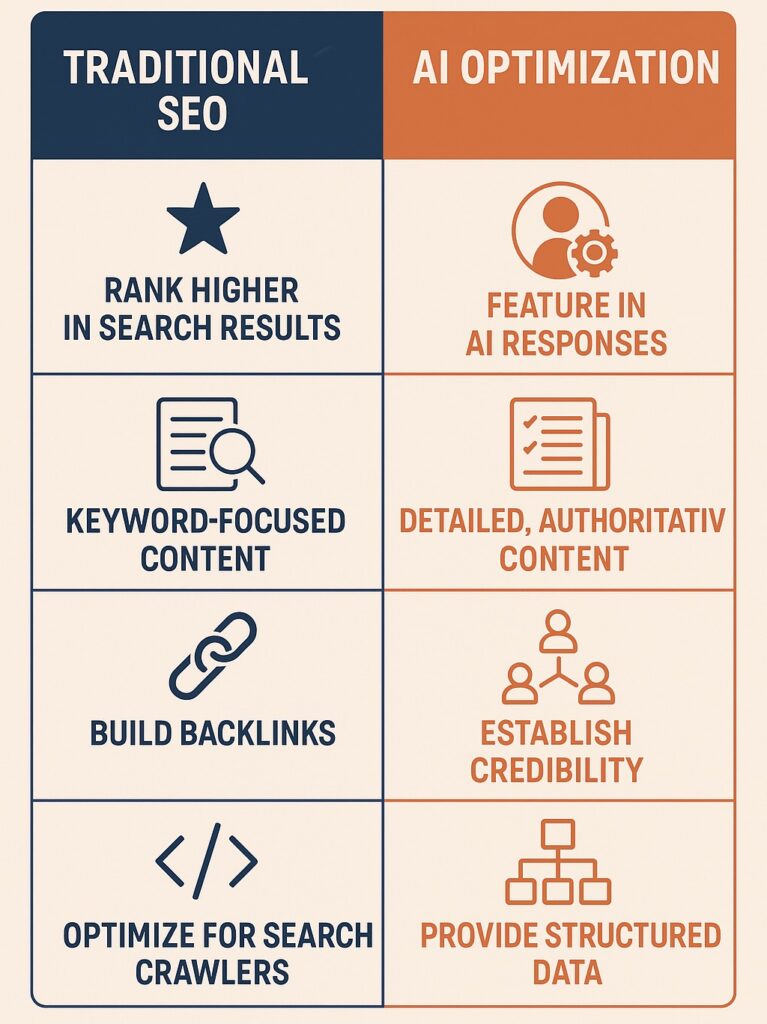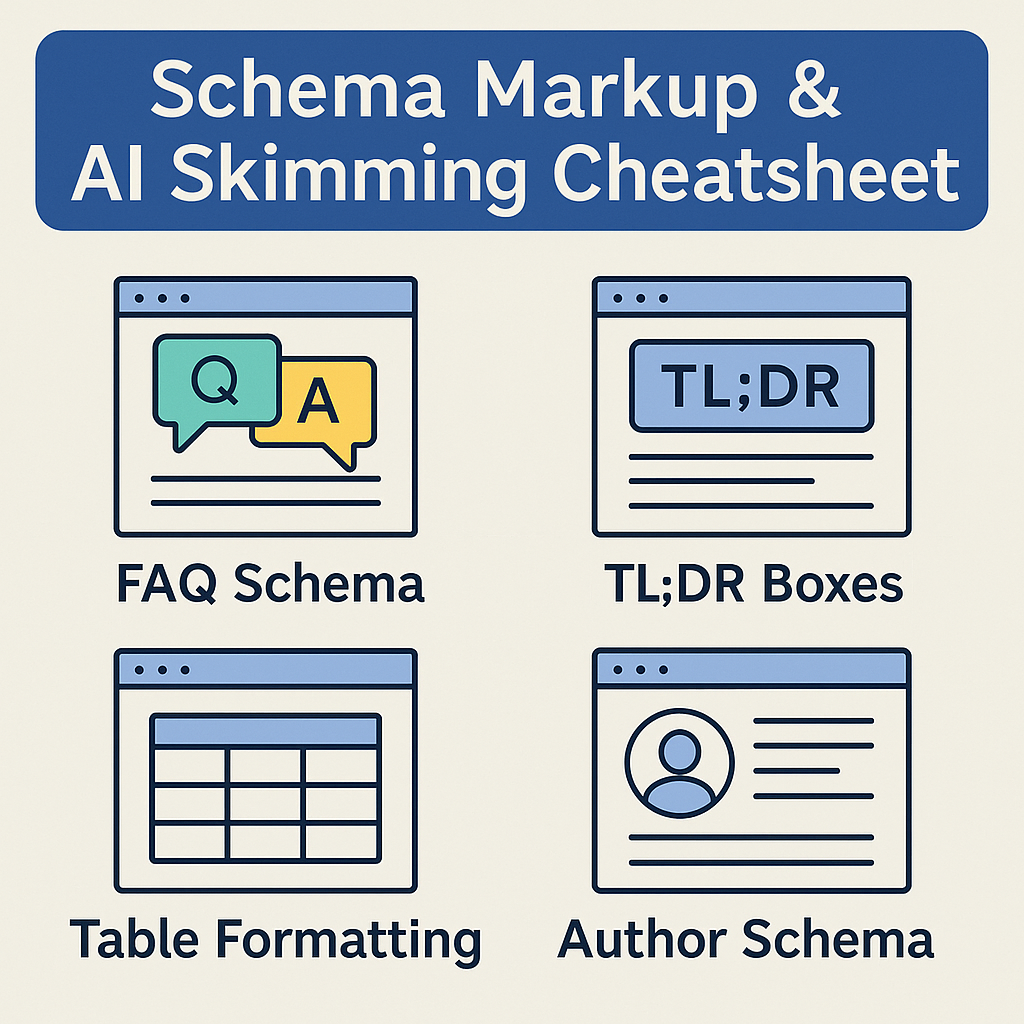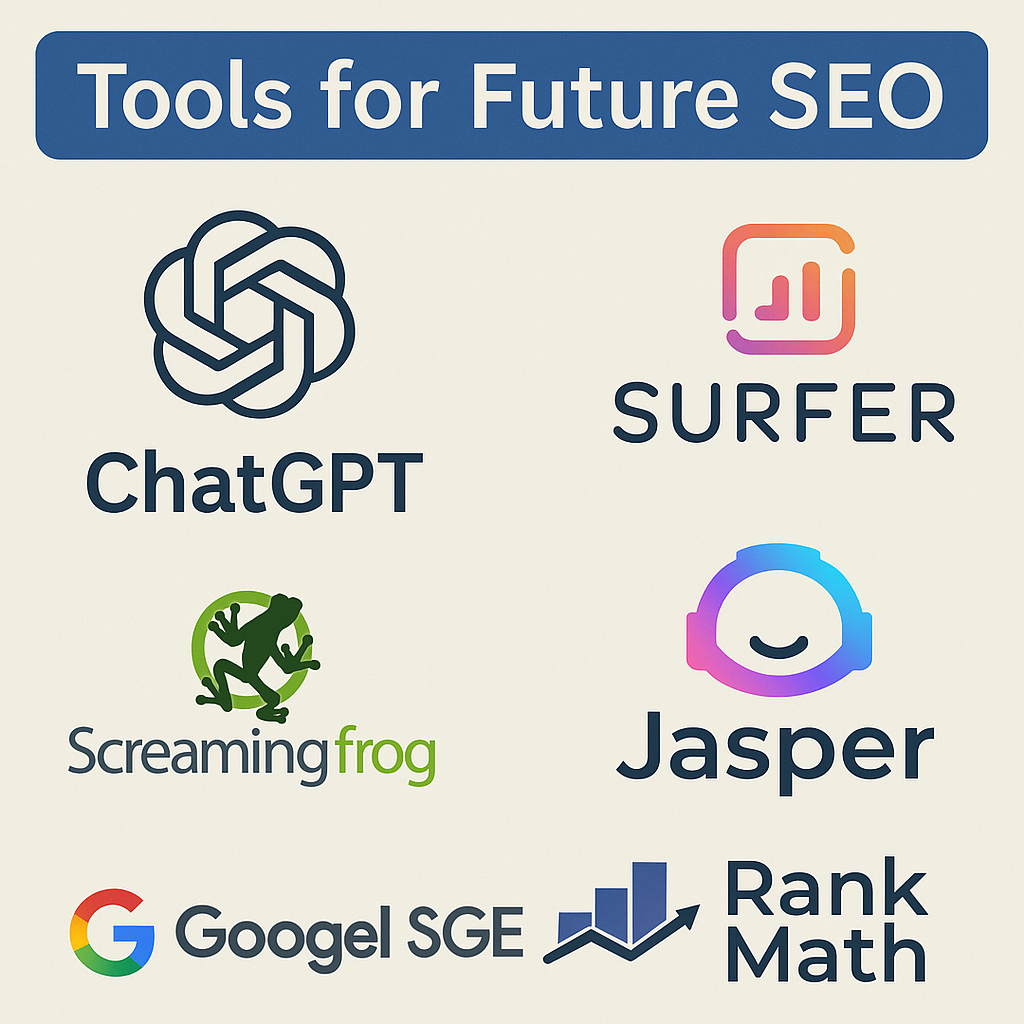Introduction: Let’s Talk About What’s Coming
Hey there, let’s be real for a minute.
If you’re running a business, blog, or brand online, you’ve probably heard whispers (or full-on alarms) that SEO is dying. With AI like ChatGPT, Google Gemini, and Bing AI serving up answers instantly—and often without a single click—it begs the question:
Is traditional SEO on its last legs? Or are we just entering a new era of content marketing?
Let’s unpack it together. Whether you’re a solopreneur, content creator, or managing a growing team, what you do next could be the difference between staying relevant or vanishing into the noise.
The State of SEO Right Now
Let’s start with the basics. Here’s what SEO has looked like for the last 20 years:
✅ Core Components of Traditional SEO (Table Format)
| Component | What It Does | Why It Matters | Top Tools |
| Keyword Research | Discover what people are searching for | Helps you target content your audience actually wants | Google Keyword Planner, Ahrefs, Ubersuggest |
| On-Page SEO | Optimize individual pages (headings, metadata, content) | Boosts page relevance for search engines | Yoast, RankMath, Surfer SEO |
| Off-Page SEO | Gain backlinks and authority from other sites | Increases your trust and visibility in search engines | HARO, Moz Link Explorer, Guest Blogging |
| Technical SEO | Improve site speed, crawlability, and structure | Ensures your site is indexable and performs well | Screaming Frog, Sitebulb, Google Search Console |
| Content Strategy | Plan and publish valuable, engaging content | Drives organic traffic and builds audience trust | Notion, Trello, Clearscope, Jasper |
These pillars are still important right now. But we’re on the edge of a massive shift.
Enter AI: The New Gatekeeper to Information
ChatGPT and friends (like Claude, Gemini, and Perplexity) have introduced a new behavior: getting answers without ever clicking a link.
They synthesize the web’s best content, summarize it, and give users what they want in seconds. No scrolling. No ads. No SEO ranking needed.
That’s a big deal. But it doesn’t mean content is irrelevant.
It means the game is changing.
The Future of SEO: From Search Optimization to Source Optimization
We’re moving from SEO (Search Engine Optimization) to what some are calling:
- AIO: Artificial Intelligence Optimization
- LMO: Language Model Optimization
- Conversational SEO: Showing up in AI answers
Think of it like this: Instead of trying to rank on page 1 of Google, your goal is now to be the source that AI trusts and pulls from.
How Do You Do That?
Let’s break it down:
🔧 Step 1: Create Authoritative, Expert-Level Content
AI models are trained to value depth, clarity, and credibility.
- Write content that answers the full question, not just a snippet.
- Cite real sources (studies, stats, experts).
- Use authorship: AI tools prefer named, verifiable content creators.
- Keep it up-to-date. AI penalizes stale content.
🔍 Step 2: Make Your Content AI-Friendly
Think of AI like a super-reader. It loves structure.
Use:
- Headings (<h2>, <h3>) to clearly outline content.
- Bullet points and numbered lists.
- Tables to summarize information.
- Schema markup (for reviews, FAQs, products, etc.).
🔗 Step 3: Build Digital Trust
Want AI to link back to your site or mention your brand? Then it needs to see you as trustworthy.
Build this through:
- Backlinks from respected domains
- Consistent publishing under your name/brand
- Social signals and expert mentions
- Verified brand presence (Google Business, LinkedIn, press features)
A New SEO Funnel: Beyond the Search Engine
Let’s map out what content marketing might look like in this AI-first world:
| Stage | Old SEO Strategy | New AI-Driven Strategy |
| Awareness | Rank for high-volume keywords | Be cited in AI answers, YouTube summaries, voice search |
| Consideration | Blog posts, reviews | In-depth, expert comparisons & case studies referenced by AI |
| Conversion | Optimized sales pages | Product data fed via API or structured content for AI assistants |
| Retention | Email follow-ups, remarketing | Personalized AI responses, chatbot integration, FAQs |

Will Websites Still Matter?
Yes. Absolutely.
Even if AI becomes the main entry point, AI still needs data to pull from. That data is your website, blog, and content hub.
If anything, it’s more important than ever to have your own:
- Branded domain (not just social profiles)
- Content library (not just a few posts)
- Owned assets (email list, lead magnets, tools)
Your site becomes your source of truth — the digital anchor that all AI models, chatbots, and assistants can reference.

Real Talk: Is SEO Still Worth It?
In short? Yes, but differently.
Here’s what’s worth investing in:
- Original insights: Data, case studies, personal experiences
- Evergreen answers: Topics AI will always need help answering
- Niche authority: Become the go-to for a narrow subject
- Strong brand signals: Show up everywhere with consistency
What’s fading:
- Thin affiliate blogs
- Spammy backlinks
- Keyword stuffing
- Ranking hacks with no value
The future is human, valuable, and recognizably YOU.
Final Thoughts: The SEO Renaissance
We’re not watching SEO die—we’re witnessing a rebirth.
AI tools are changing the surface-level rules, but the fundamentals of good content, strong branding, and audience value are more alive than ever.
So what do you do?
You adapt. You evolve. You create content for humans and machines.
Because even if search engines fade, the need for trusted, helpful, well-crafted information will never go away.
Bonus: 5 Quick Wins to Future-Proof Your Content
- Add Schema to your key pages (FAQ, Reviews, Products)
- Update your top blog posts with current stats and references
- List your authorship on every article with bio and social links
- Build backlinks from trusted directories and guest articles
- Add a “TL;DR” summary section to each post for AI skimming

